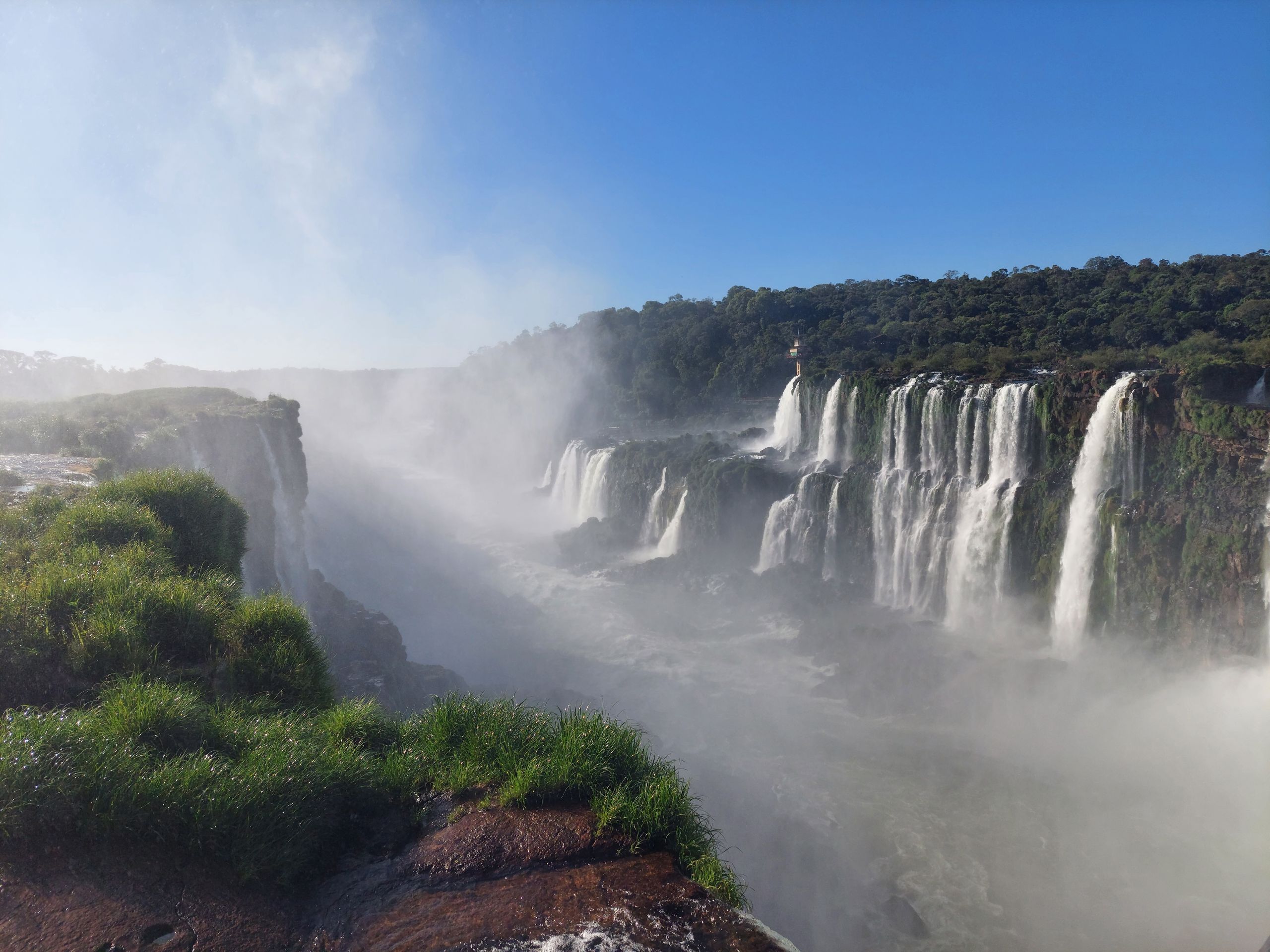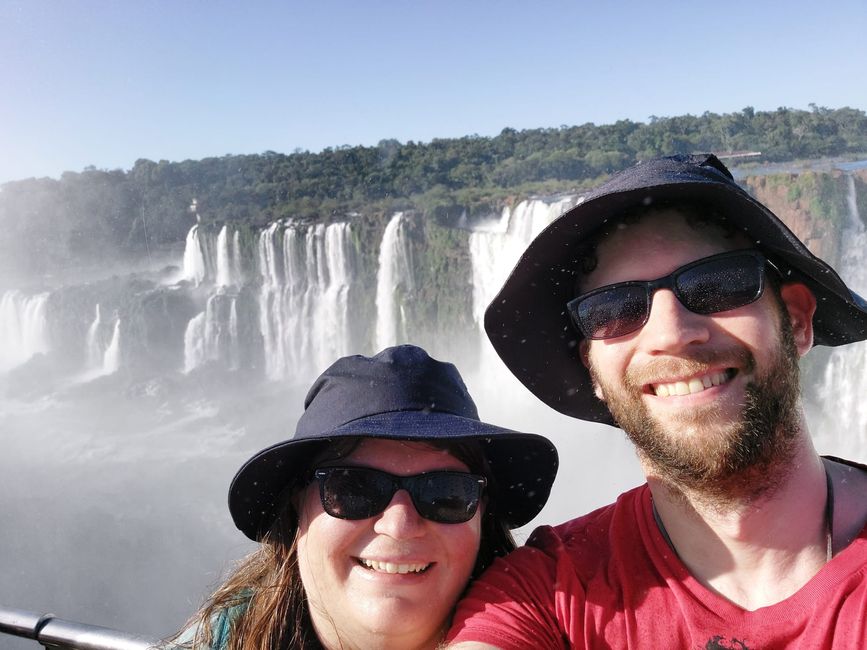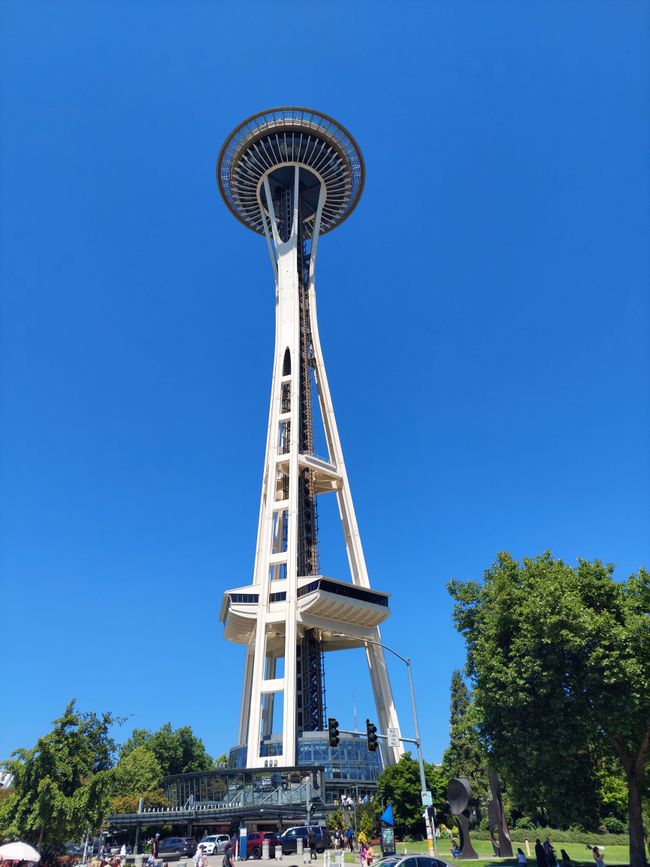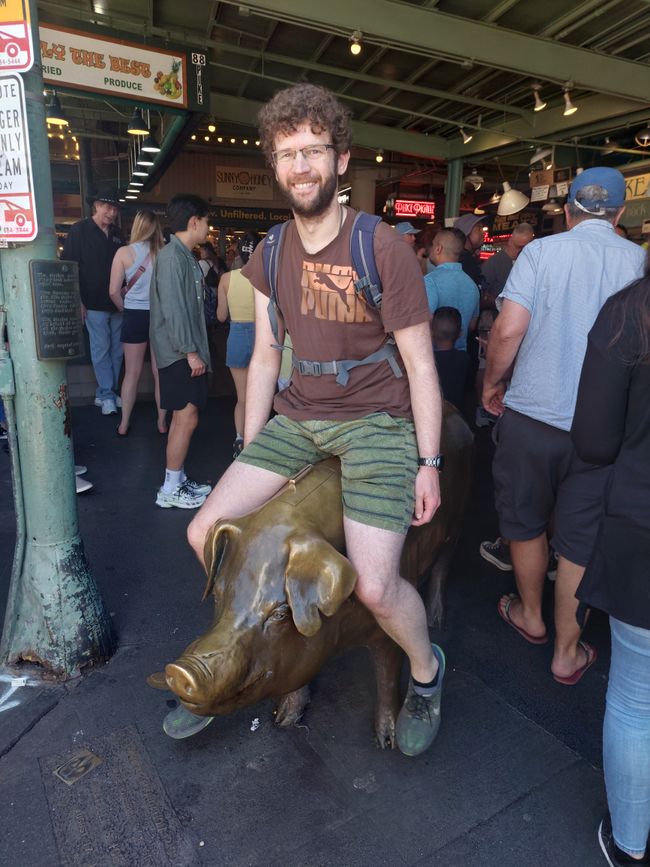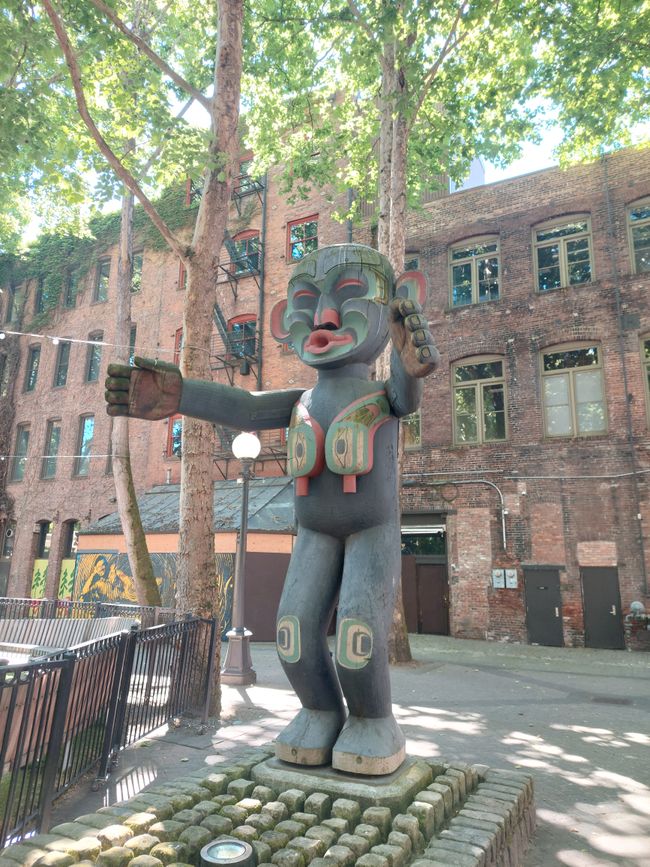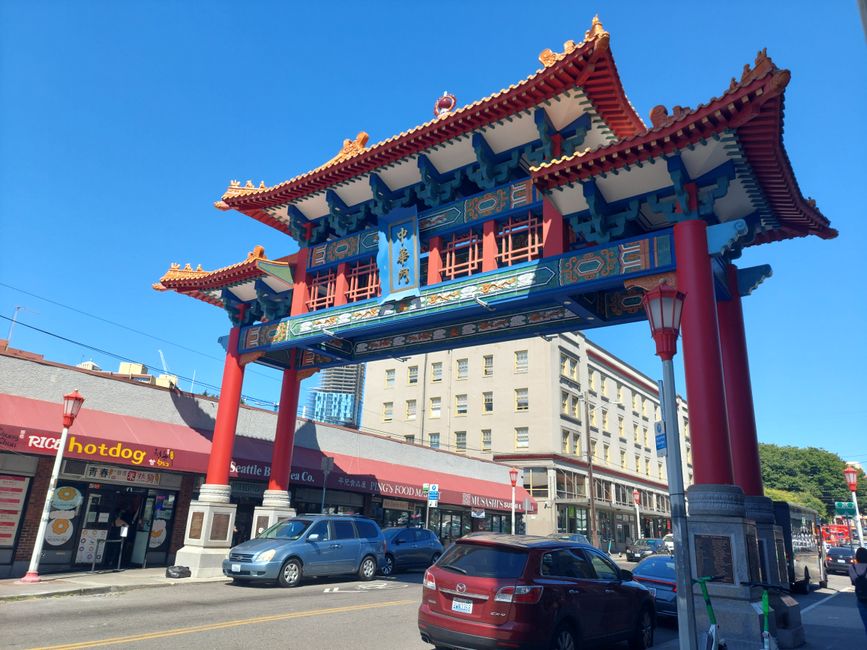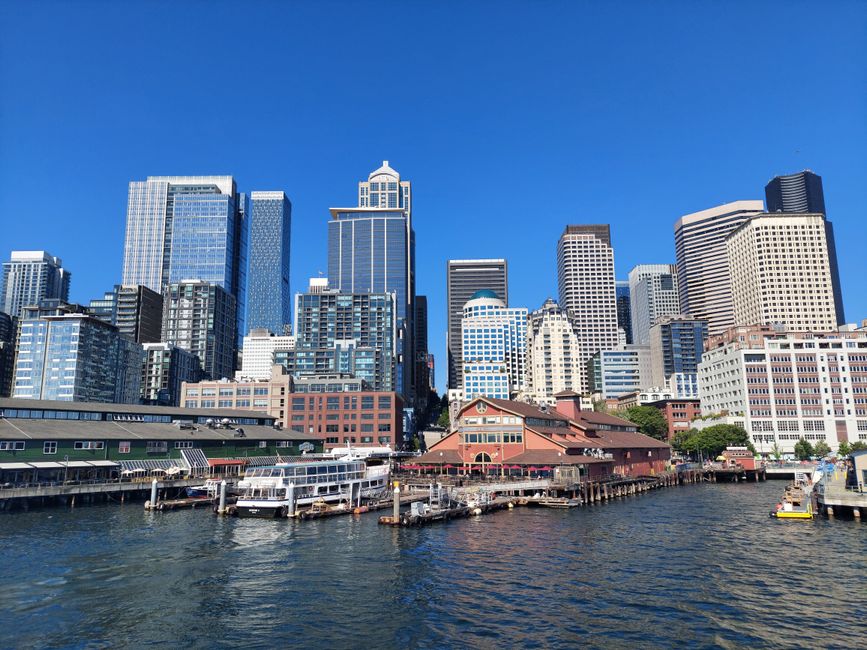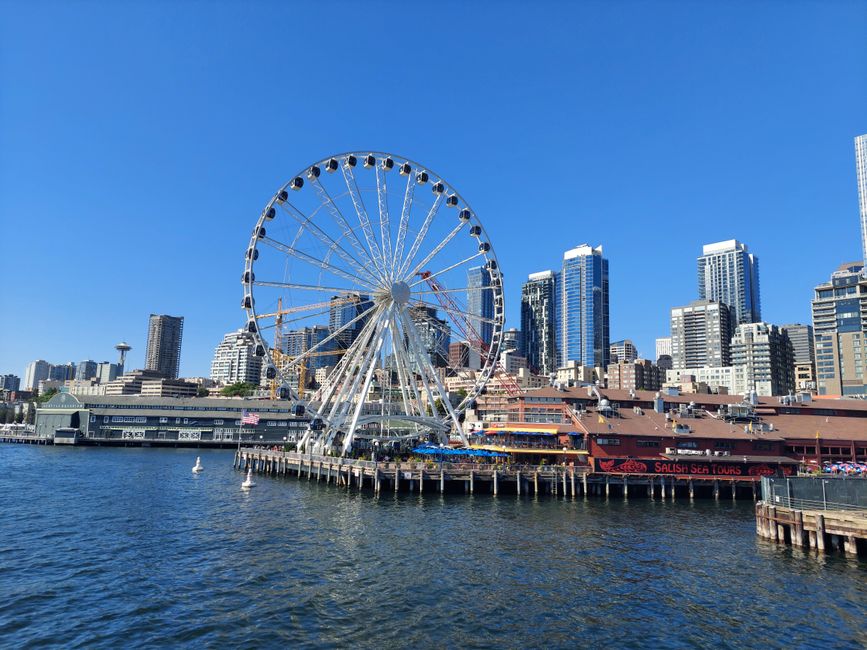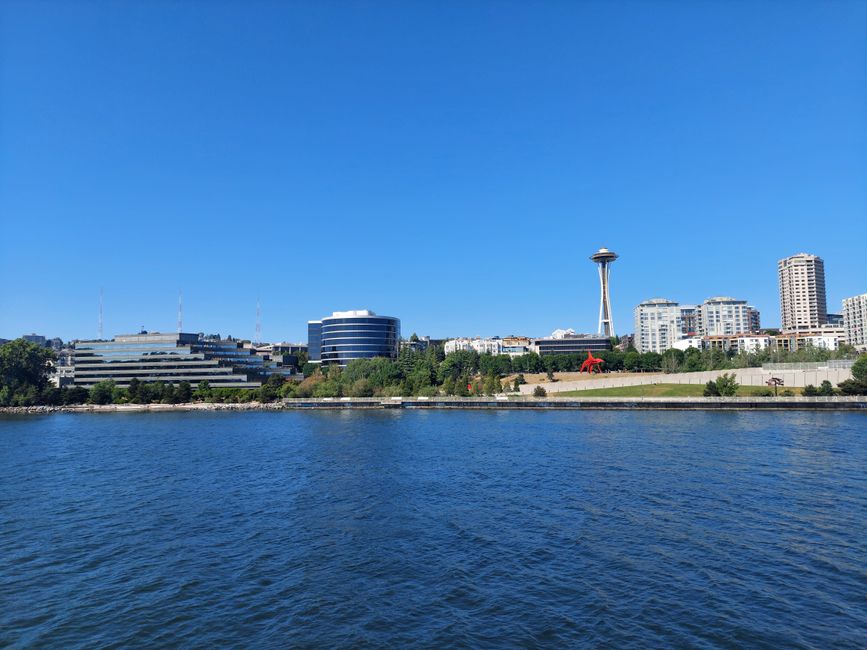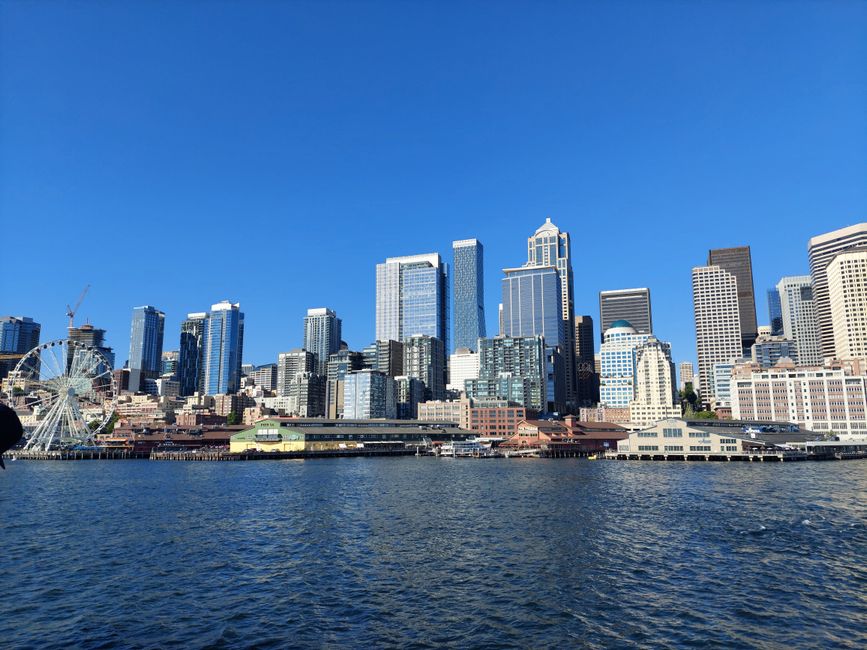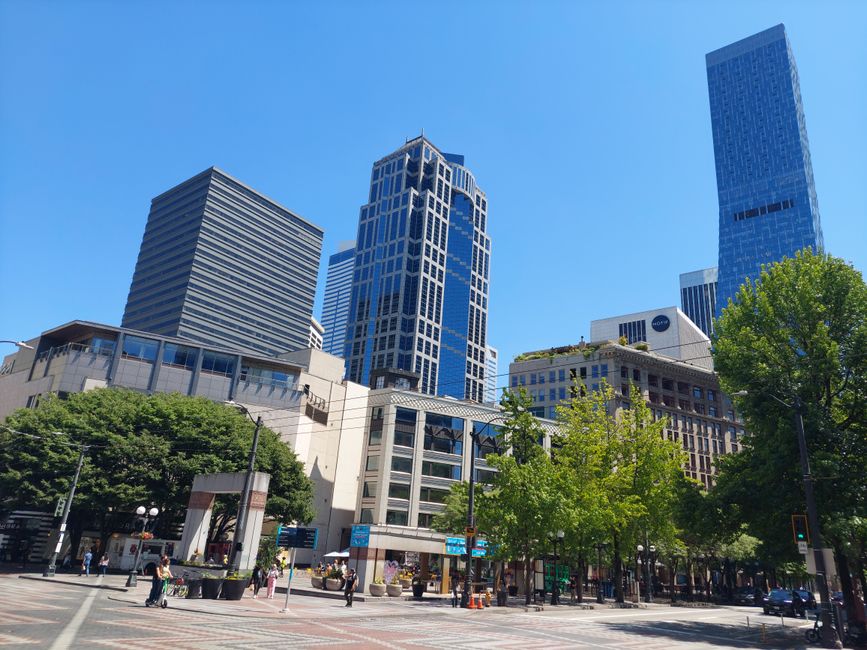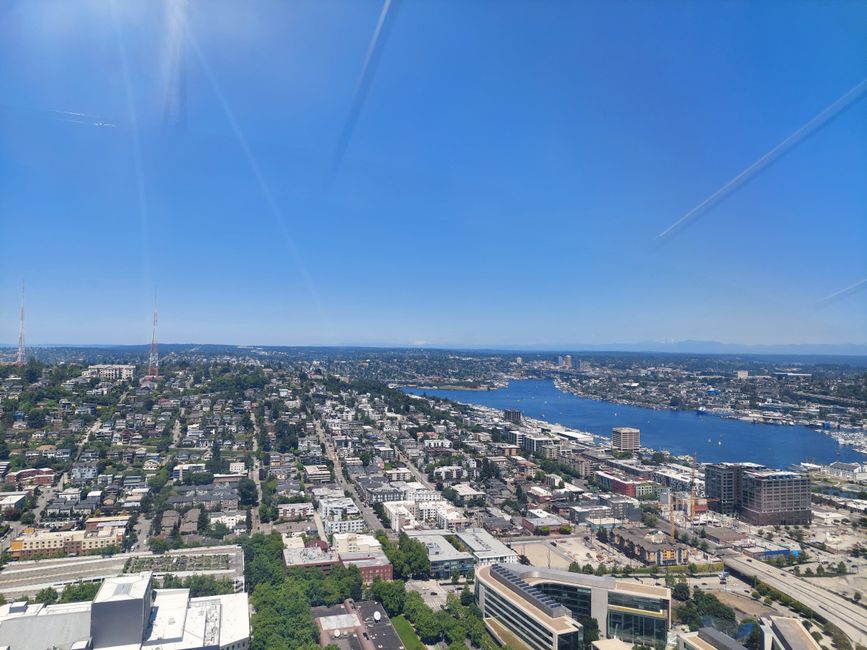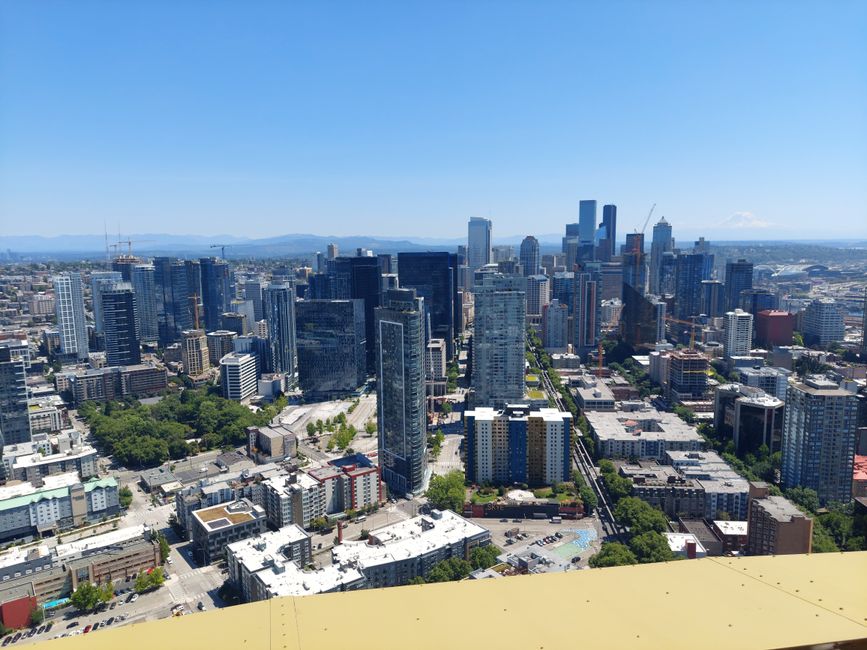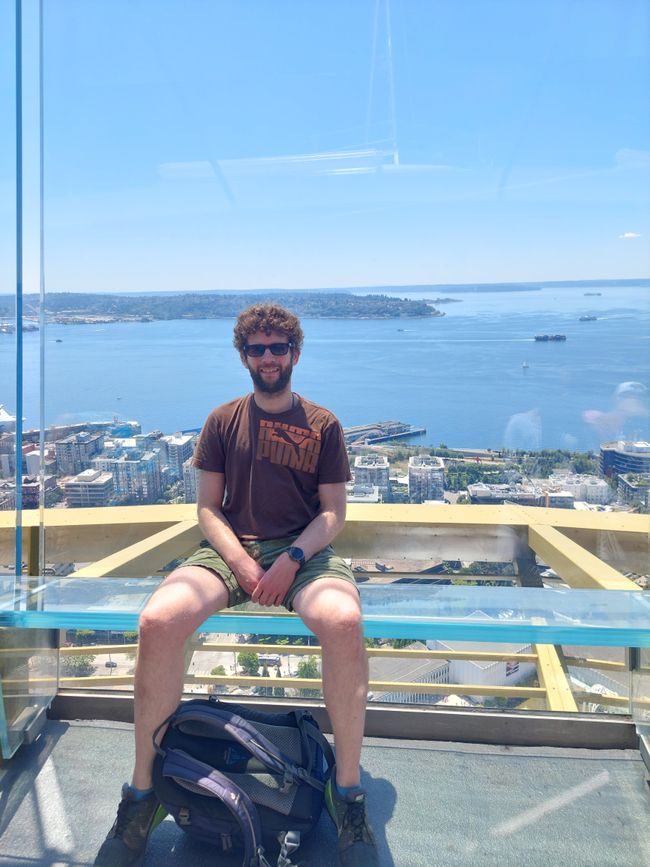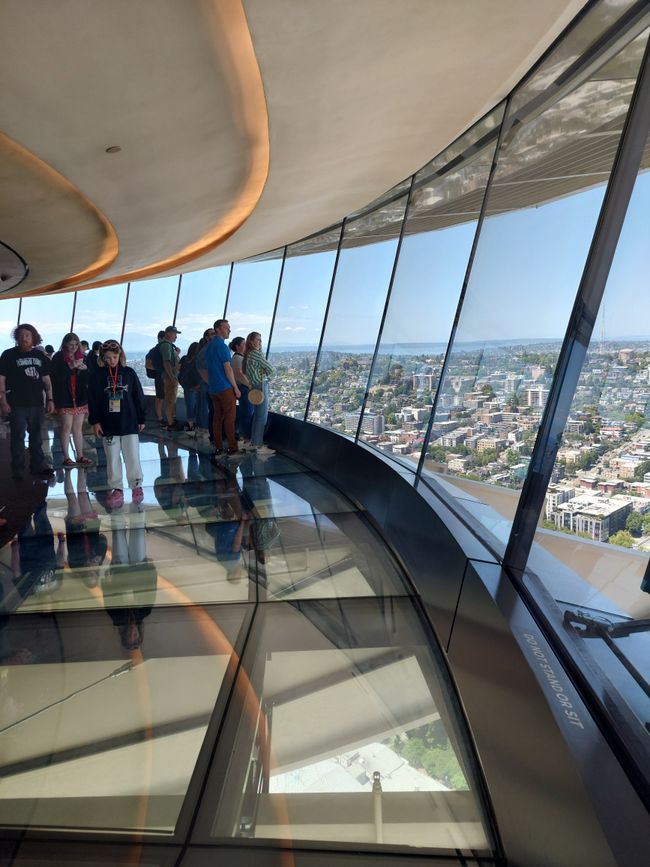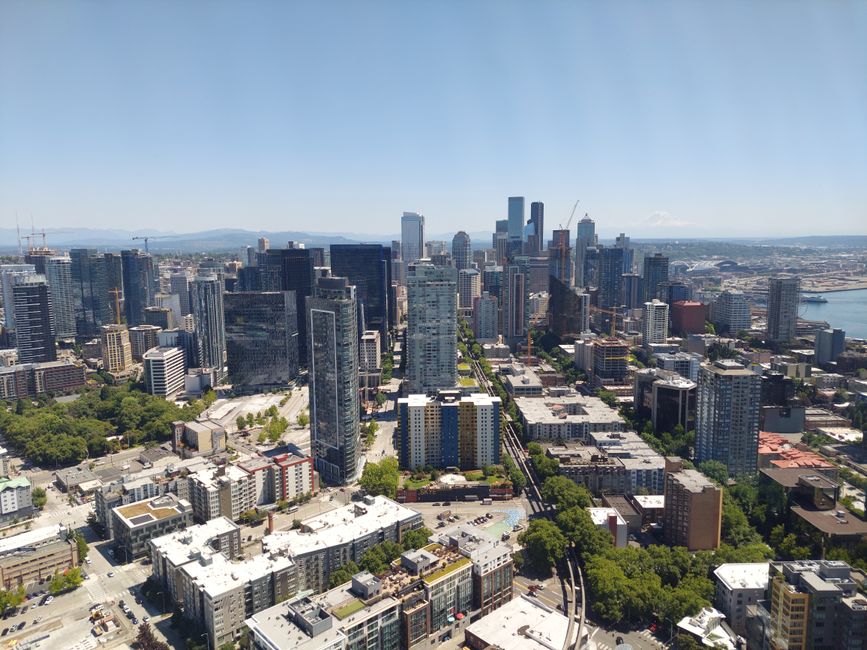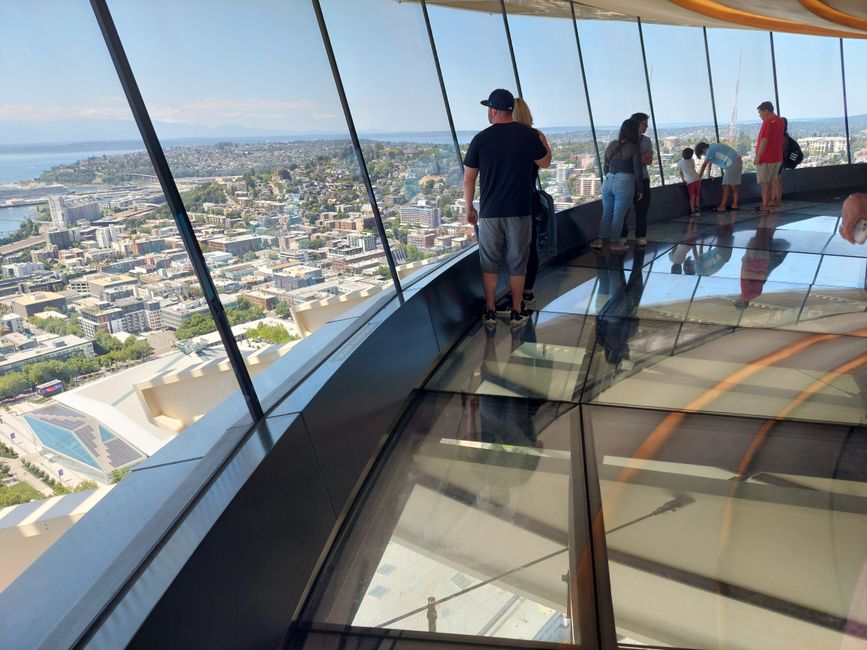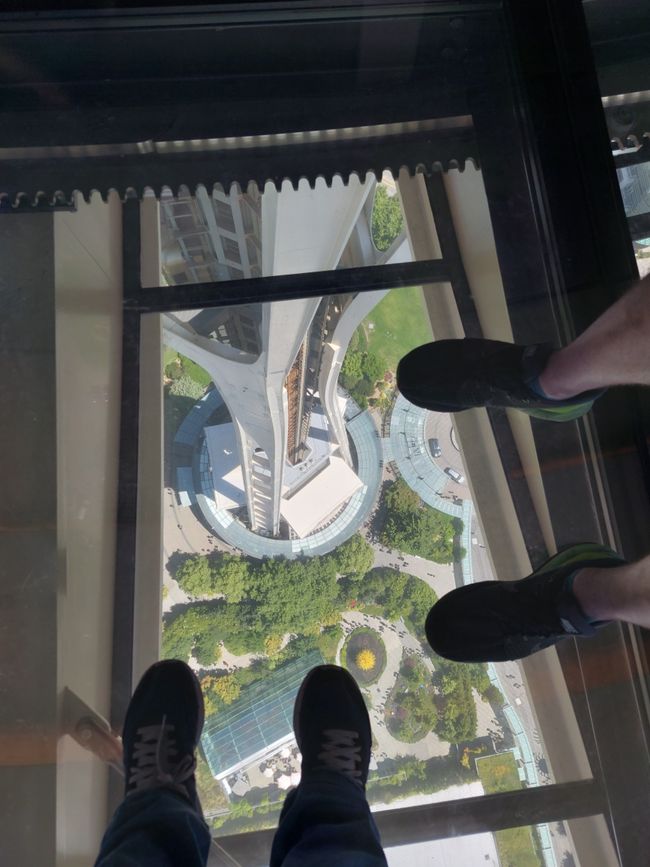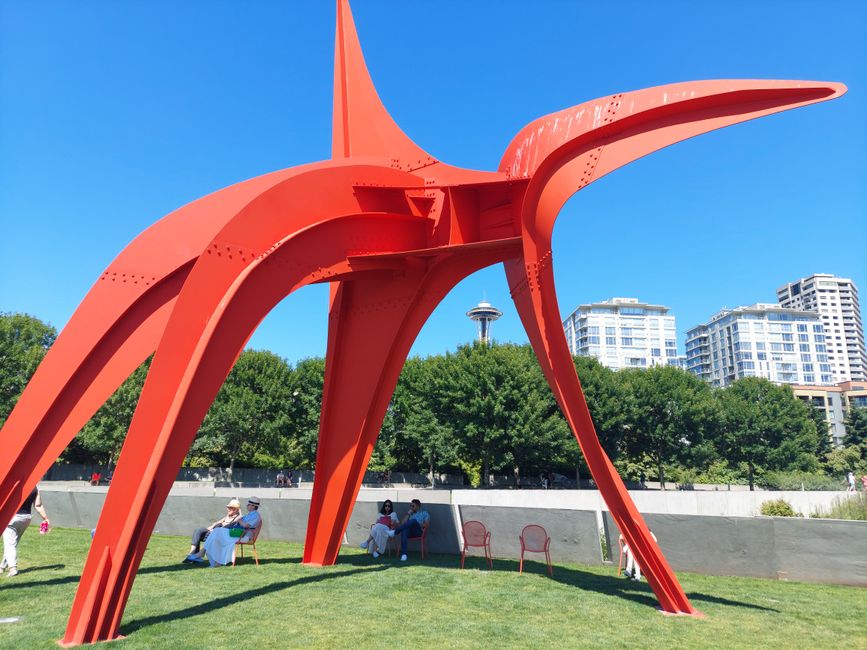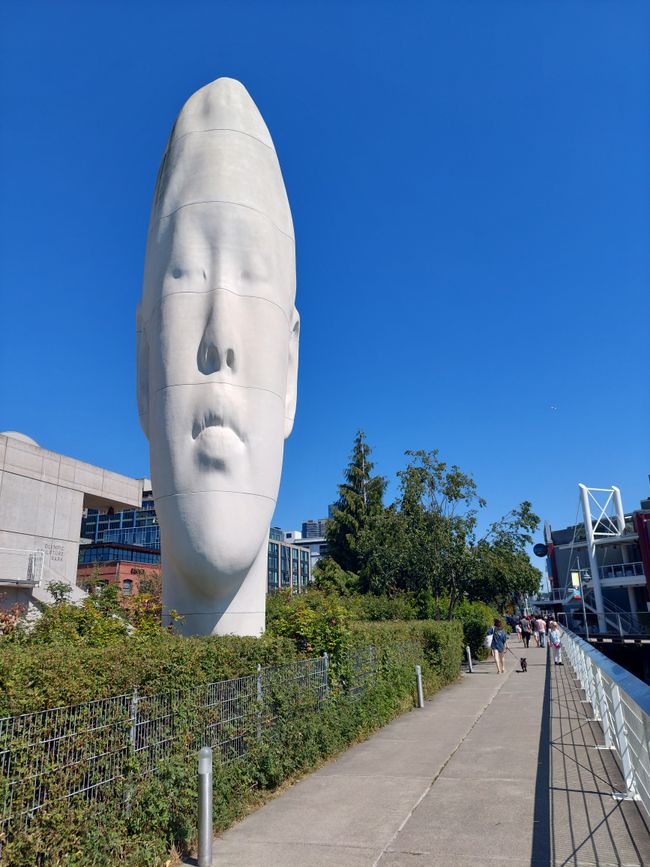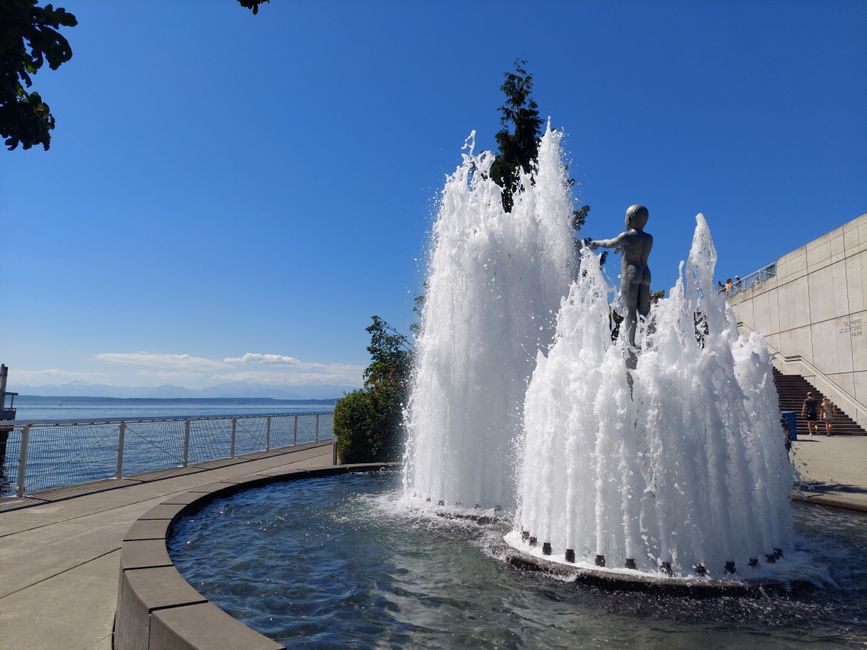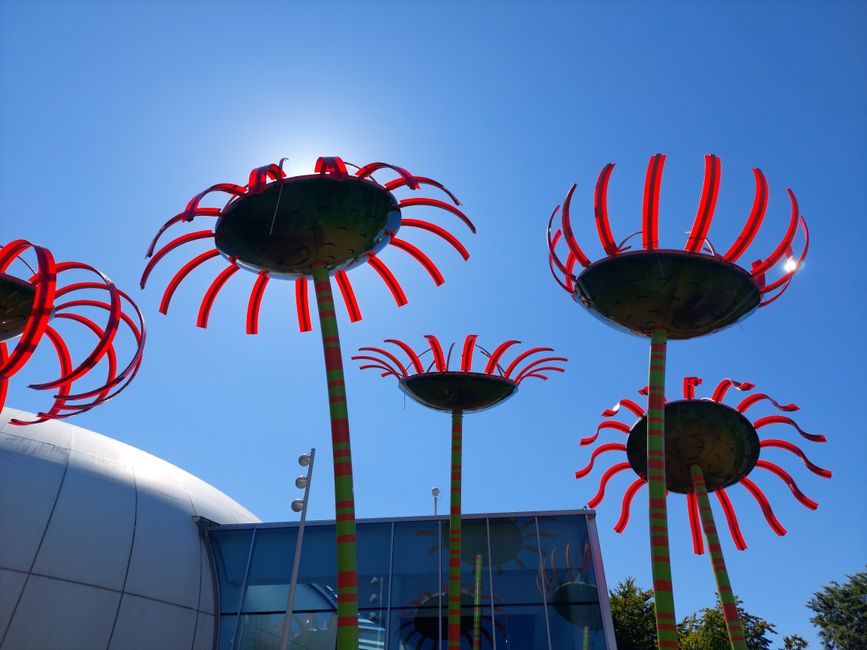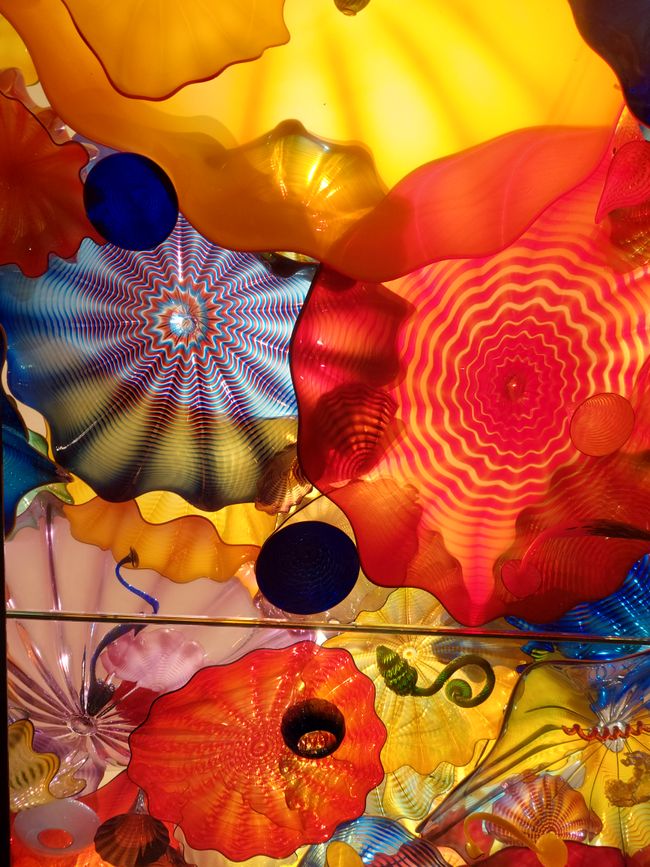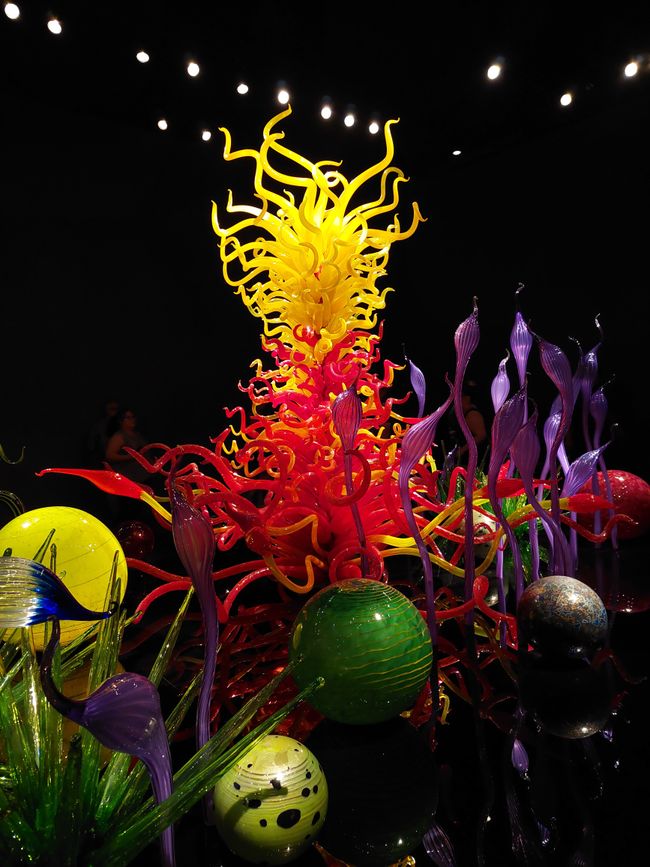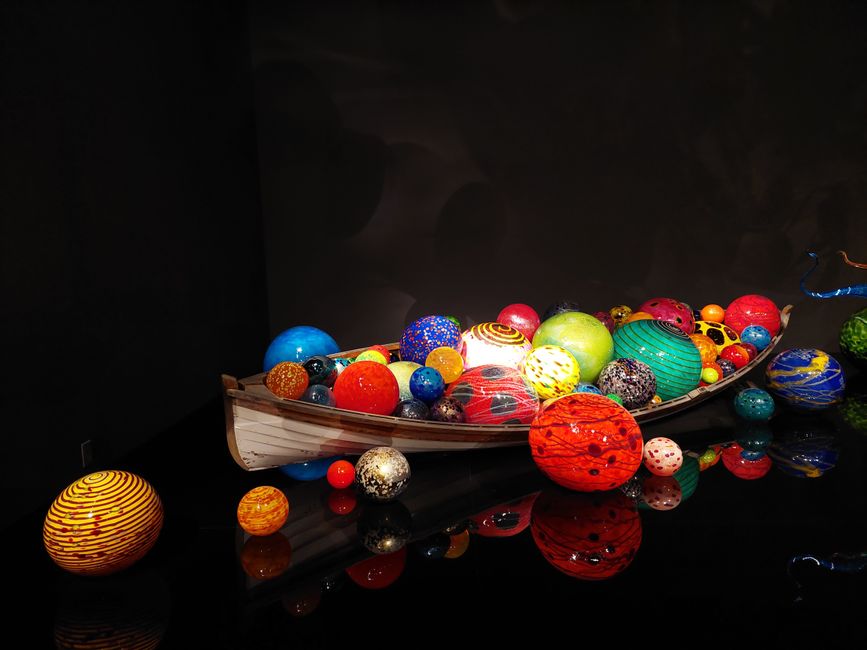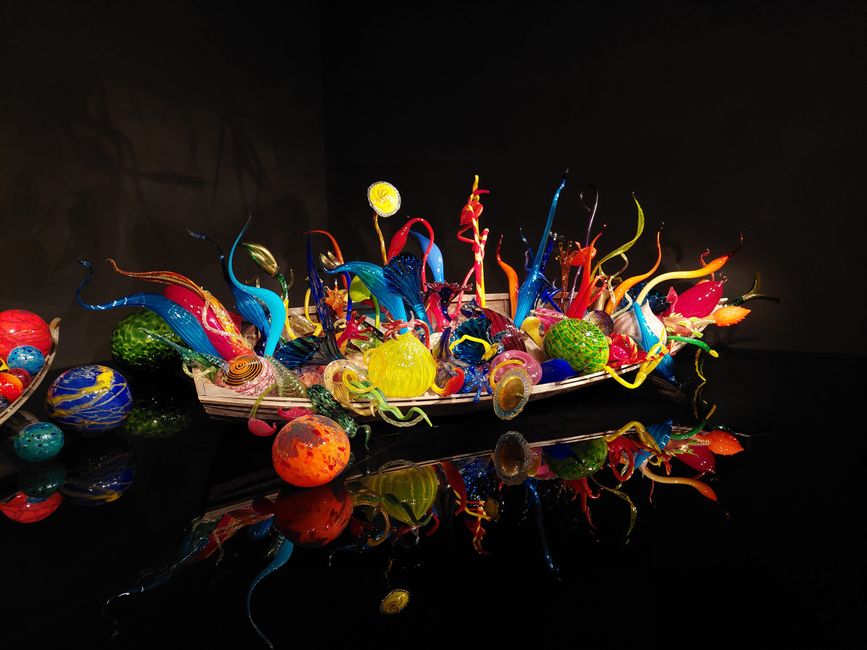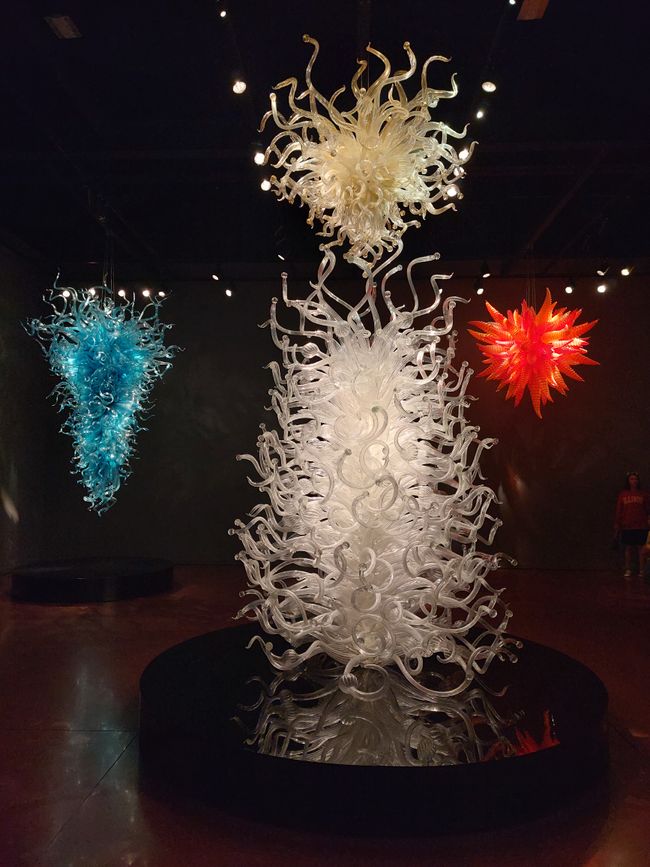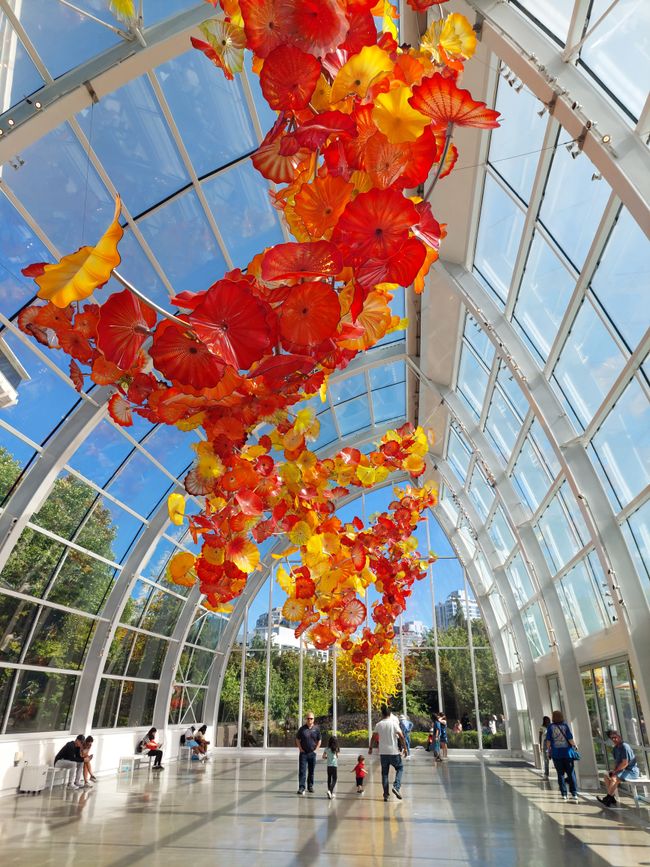Seattle
Gepubliceerd: 30.07.2023
Abonneren op de nieuwsbrief
Our original plan for the US was to fly to Los Angeles, then drive along the West Coast and finally cross to the East Coast, but because we now had three months instead of two, we flew to Seattle in the state of Washington to initially drive down almost the entire West Coast. Unlike the flight to Buenos Aires, this time it didn't start in the evening German time, but in the middle of the day. In this case, you actually get used to the time difference best by trying to sleep as little as possible on the plane. The lights were dimmed at a reasonable German bedtime, and many people probably wanted to sleep. In any case, people complained about it shortly before 10 p.m. the old time when we had pushed the blinds up to enjoy the spectacular view of Canada. So we lowered them again and unfortunately had to ignore this view. Immigration to the US was surprisingly uncomplicated. We had expected similar scenes as back then in Miami on the way (!) to Mexico when we were not married yet and Sebastian as a bearded single man was thoroughly searched, causing us to miss the connecting flight if it had been on time. Maybe people here in the north are more relaxed. We took a shuttle from the airport to the car rental station, went to the appropriate counter, and then chose the nicest one out of four cars in the parking garage that would accompany us for the next three months.
From there we didn't have far to our first accommodation, a motel, from where we could take the train into the city on the next two days. All of this was convenient, but the accommodation was not particularly comfortable. Fortunately, we immediately received a free upgrade to a room with two queen-size beds, a microwave, and a refrigerator when Sebastian asked where he could cool his medication. Still, it was unusual that there were rooms without a microwave and refrigerator in this motel. The well-connected area, where there were also some restaurants within walking distance, was otherwise not particularly trustworthy.
This suburb of Seattle is called 'SeaTac', formed from the words Seattle and Tacoma, which is related to the fact that Seattle shares the airport with the nearest major city, Tacoma. So it's just like at Münster-Osnabrück Airport, as Judith explained to Sebastian. A perhaps more fitting similarity to our hometown is the reputation as a rainy city. It supposedly rains a lot in Seattle, but this refers to the number of rainy days per year - the total amount of rain is not that high. We Münster residents understand this difference well because it is always told to all outsiders about our city. In fact, it didn't rain at all during our stay in Seattle, we had blue skies and, according to a tour guide, unusually clear views. Sebastian also wanted to personally see another aspect in comparison to Münster: he still remembers how, at the time when he moved to Münster, it was in everyone's mouth that his new place of residence had just established itself against Seattle as the 'Most Livable City in the World'. These two cities, however, happened to be in the same size category at the 'LivCom Award', on which this title was based. But apart from that, we believe that American and European cities can hardly be compared in terms of their atmosphere. So we were curious to see what impression Seattle would make on us in terms of quality of life.
For the first of the two sightseeing days, we once again planned a free walking tour, but we missed it because we had to wait too long for our pancakes. We had spontaneously found a very American pancake restaurant for our first breakfast, which was still somewhat near the accommodation and the train station towards the city. (An American 'near' is meant here, because everything is always further apart here, and we had already had enough of the boring path between the accommodation and the train station at the end of the two days.) So after breakfast, we took the train to the city, only arrived there after the start of the tour, and then just did our own tour. For this, Judith took a flyer from a hop-on-hop-off city tour bus and identified all the important stops there. As soon as we found Wi-Fi somewhere, we researched more details. Our first stop was Pike Market, a market hall with a lively atmosphere and a small golden pig statue as its landmark. Next to it is the Gum Wall, the second most unhygienic monument in the world. Many people have stuck their chewed gum on it, which looks impressive and also smells. Next, we went to Pioneer Square and other squares and parks with erected totem poles and masks that are supposed to remind of the indigenous population of this region - or were stolen from them by the pioneers. There were several such parks, but they were mostly manageable in size, and for people from Europe, it may be somewhat unusual that they always fit into the grid-like street structure and are only 1x1 or 2x2 blocks in size. We also noticed that there are often many mobile tables and chairs set up there, which you would only find in front of restaurants and cafes with us (where you couldn't just sit down without ordering anything). After strolling through Chinatown, we went to the waterfront, where we took a harbor tour. We had planned this in advance because we had read that such a tour was recommended, and we had bought a Seattle City Pass in advance, which included this as one of three activities. The tour was also very good, we had a beautiful view of the skyline (and the weather was surprisingly nice), we were told more things about the city, and we also drank two IPAs because it was happy hour on board. After the tour, we succumbed to a visit to the neighboring 'Wings Over Washington', one of those at least-4D flight simulation cinemas that have become modern worldwide. The floor is pulled out from under you, so you feel like you're flying, the short films are three-dimensional because of a curved screen, and there are also gusts of wind and splashes of water as additional dimensions. We liked something like this quite a bit in Amsterdam. But here it was disappointing because the film about the various landscapes of Washington was very short, nothing was explained about it, and it was very expensive. Before we took the train back, we bought yogurt and mini omelettes in the supermarket to have breakfast in the accommodation the next day because at least we now had a microwave in the room.
The next day, we got coffee for breakfast from a beach right in front of the motel. The flight was still affecting us a bit. Although we had managed to sleep little to not at all on the plane, you could tell that the time difference from Germany to the US West Coast is still several hours larger than to Buenos Aires. Nevertheless, we pulled ourselves together and took the train back into the city because we had already booked appointments for the other two attractions included in our city pass. The first one was the Space Needle, the famous landmark of Seattle, from where we had an impressive view of the entire city. One floor below the observation deck, we also ventured onto the rotating glass floor. Afterwards, we still had some time for the Olympic Sculpture Park, where there were a few sculptures that, as is usual with modern art, were more or less explained and understandable, before our booked time slot at the neighboring Chihuly Garden and Glass Museum arrived. This museum exhibits many very beautifully colored glass artworks, all of which were created by glass artist Dale Chihuly. On this day, we also passed by the Amazon headquarters. The most striking thing here were the Amazon Spheres next to it - glass domes that are mainly used by employees as relaxation rooms. They were not open to the public on this day, so we only went around them once, saw mainly a lot of plants inside, and didn't pay any further attention to them. Seattle is also home to other companies that may be familiar to individual people, such as Boeing. We didn't drive to the Boeing factory, which is 30 miles away, because the recommended tour has been closed since the pandemic and visiting Boeing otherwise is not worth it. Anyway, Sebastian prefers Airbus. In the evening, we had Peruvian food near the motel. Since the waitress didn't speak English very well, we ordered in Spanish. So once again, 'Sí' instead of 'Oui' was called for... We were generally surprised that so much Spanish is spoken here in the northern United States and that in this case, it seemed normal to others that we could also communicate in Spanish.
As we can say after these two days, Münster is of course still the more livable city for us, but for an American metropolis, Seattle has its charm with its colorful mix of population, its many parks, and its coastline. But now we started our road trip.
Abonneren op de nieuwsbrief
Antwoord
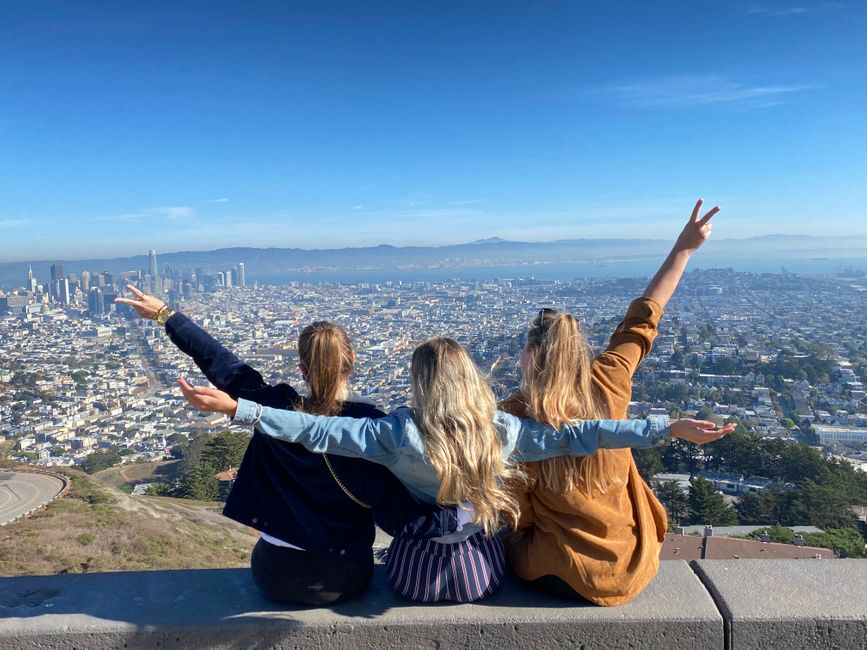
Reisverslagen VS
